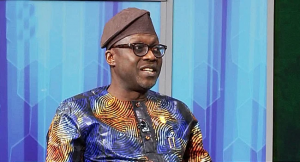Stakeholders have called for improved data collection and targeted policies to integrate Nigeria’s informal sector into economic planning, while also urging efforts to revive struggling industries in the North-East.
Speaking at the Stakeholders’ Forum on Economic Data Performance, Dr. Olubunmi Kole-Dawodu, State Manager for the Small and Medium Enterprises Development Agency of Nigeria (SMEDAN), stressed the importance of capturing the contributions of over 50 million informal businesses in Lagos. Reliable data, he noted, would ensure better GDP calculations and inform policies for sustainable growth.
Mrs. Olayinka Modupe Ojo, Permanent Secretary, Lagos State Ministry of Economic Planning and Budget, echoed this, acknowledging the sector’s critical role in livelihoods while lamenting its underrepresentation in economic data, which hampers integration.
Meanwhile, in a separate discussion, stakeholders lamented the economic decline in Nigeria’s North-East region. The Director-General of the Manufacturers Association of Nigeria (MAN), Segun Ajayi-Kadir, revealed that the region has lost 732 MAN member industries over the years, primarily due to insecurity and inadequate infrastructure.
“Thirty years ago, industries were thriving, but insecurity and poor infrastructure have caused massive closures,” he said, emphasizing the need to revive dormant industries and improve the local business climate.
Ajayi-Kadir underscored the importance of supporting domestic businesses to attract sustainable foreign investments. “Foreign firms won’t invest where local businesses struggle. A thriving domestic sector is key to sustainable economic growth,” he concluded.
The forum served as a platform for stakeholders from government, civil society, and the private sector to address these gaps. Discussions focused on empowering the informal sector, revitalizing regional industries, and fostering a more conducive environment for sustainable development across the country.










